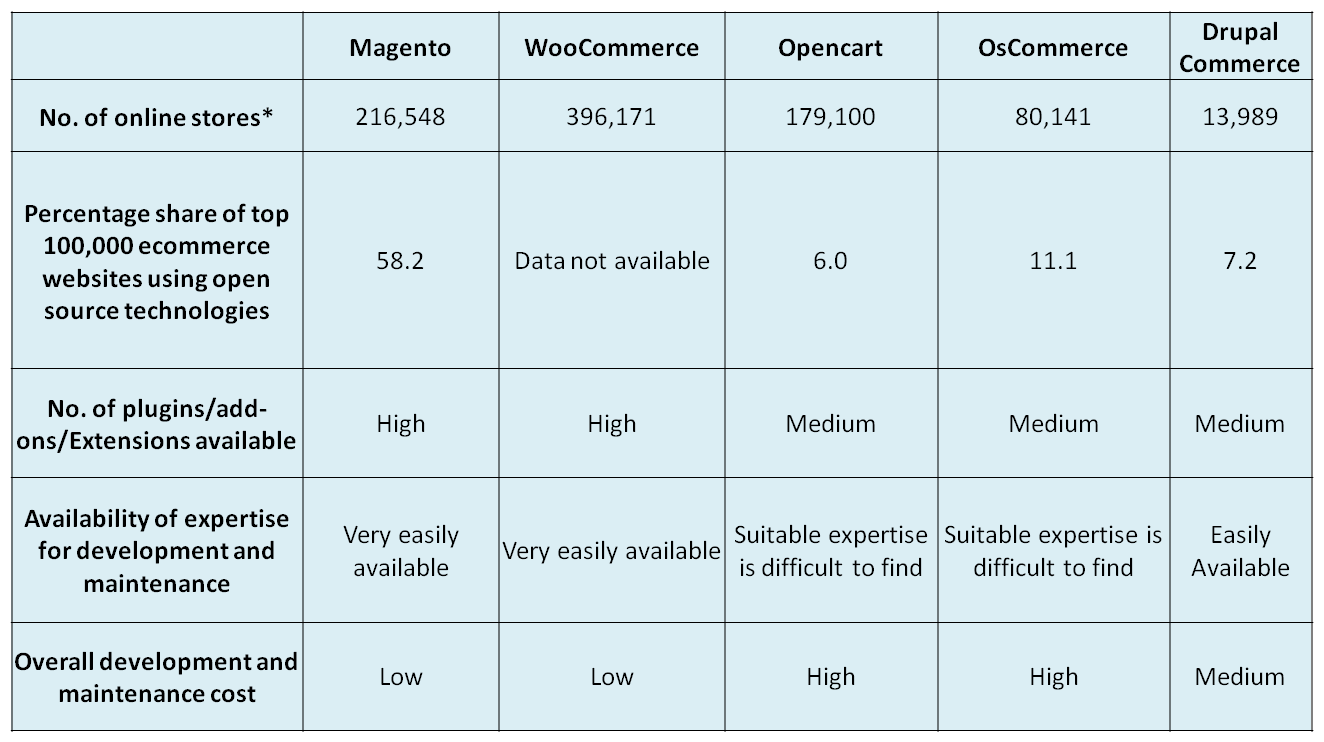
In a market as saturated as the ecommerce platform market, it can be very difficult to decide which shopping cart software best meets your needs. If you are considering starting your own store, then chances are you have already run into this struggle at some point. So far I have reviewed most popular platforms and this article help for easily decide which platform used on your site depending on your site requirement.
With nearly 21% of the world’s top 100,000 ecommerce sites built on the Magento platform*, it is by far the most popular and one of the best ecommerce CMS’ being used today.
Its biggest advantages are the large number of plugins and extensions available which allow the addition of any new functionality, the ease of availability of experienced developers as well as a lower overall development and maintenance cost.
Why choosing Magento stores?
Magento is the best open source for M-commerce nowadays for outstanding features:
– Multiple stores creation
– App management
– Free technical supporting
– Multi-devices compatibility
– Customization
– Low cost
Why better Magento?
– It has Multi-site functionality.
– It has the ability to import huge spreadsheets of product.
– Searching and sorting of product Capability
– Built-in functionality for all the major merchant accounts.
– No limits on the number of product or purchases
– Integrated sales and store tracking
Cons:
– It requires sufficient server space to operate efficiently at high speeds. Smaller servers may cause speed and other related issues
– Might be too complex for businesses that are too small
WooCommerce is a WordPress plugin used for building ecommerce websites on the WordPress platform. A large number of WordPress themes have the WooCommerce functionality built-in.
WooCommerce might work out more user-friendly and cost-effective for smaller businesses as well as for those familiar with WordPress.
Pros:
– Easy setup – WordPress requires very little time to get familiar
– Runs on WordPress – so does not have powerful servers requirements
– The good number of lower-priced add-ons and themes available
– Huge WordPress support community
– Easy Integration with emailing platforms such as MailChimp so that you can stay in touch with your
customers
Cons:
– Might not work for mid and large size businesses or for businesses looking to scale up soon

osCommerce is a fairly popular ecommerce platform as well, with about 11% of the top 100,000 sites built on open source technologies using osCommerce
Pros:
– Easy installation and an easy-to-use interface
– Active forum with a large support base
– A large number of plugins and add-ons allowing the addition of most functionalities
Cons:
– Some users find that the software updates and designs have not kept up with times and remain slightly outdated
Opencart is another open source CMS for ecommerce. Though it has one of the easiest to use backends, its support systems are not as comprehensive as compared to the other platforms listed.
Pros:
– Easy to use back-end
– Feature rich with a large number of plug-ins
– CSS can be edited from within the admin
Cons:
– Some users report difficulty in installation of some themes
– Support documentation is not comprehensive enough